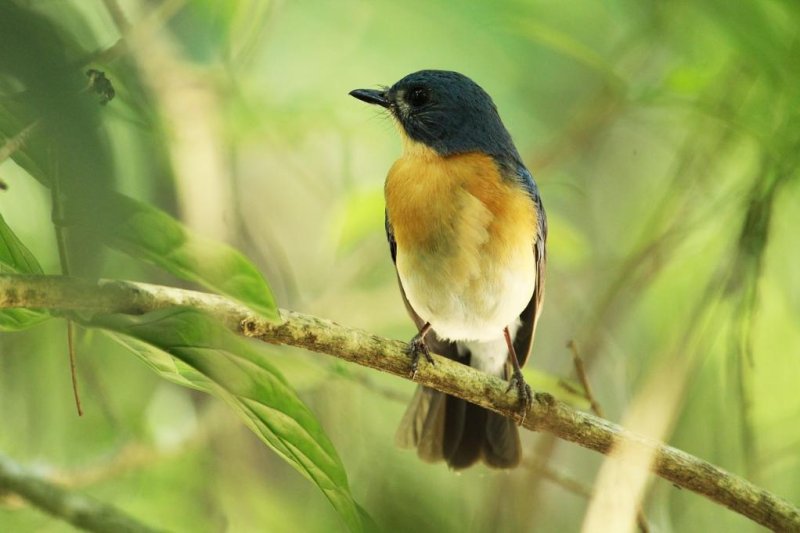To woo females with high standards, some male songbirds continue to learn new songs throughout their lives. Photo by
ambadysasi/Pixabay
Sept. 5 (UPI) -- Some male songbirds have evolved the ability to learn longer, more complex songs, evolving their song as they get older. New research suggests their adaptive learning was inspired by the high standards of hard-to-get females.
A bird's ability to learn, practice and tweak songs throughout its life is called "adult song plasticity" or "open-ended learning." Scientists previously believed the ability evolved as a result of changes in a bird's environment, breeding season or migration.
The latest research, published this week in the journal eLife, showed songs -- which are primarily used to woo mates -- continue to evolve as long as birds can learn. Lifelong learning may even drive evolutionary changes in a bird's brain.
"We were curious as to why some birds learn throughout their lives and why others only learn when they're juveniles," Nicole Creanza, professor of biological sciences at Vanderbilt University, said in a news release. "Researchers have thought about this question for a while, but usually linked their findings back to those other environmental aspects of the birds' lives. We had a hypothesis that sexual preference for songs could also be a factor."
Not all songbirds continue to learn and evolve their songs throughout adulthood. Just as humans acquire most of their language abilities during adolescence, the singing abilities of many birds have crystallized by the time they reach sexual maturity.
To better understand differences in learning and song plasticity among songbirds, scientists compared the songbooks of 67 different species. Researchers compared the overall length of songs, as well the size of their vocabularies -- the number of syllables each species can sing.
The analysis showed birds with the greatest repertoire of songs and the broadest vocabulary tend to practice lifelong learning. The findings, which suggest sexual selection encourages open-ended learning, could have implications for studies of human learning.
"As we learn more about these time-windows for learning in birds and what causes them to evolve and lengthen, we may be able to apply those findings to how and why human learning windows may have evolved over time," Creanza said. "One day, if researchers understand what happens in the brain when a bird maintains its ability to learn, it might shed new light on how to help the brain repair itself in humans."















